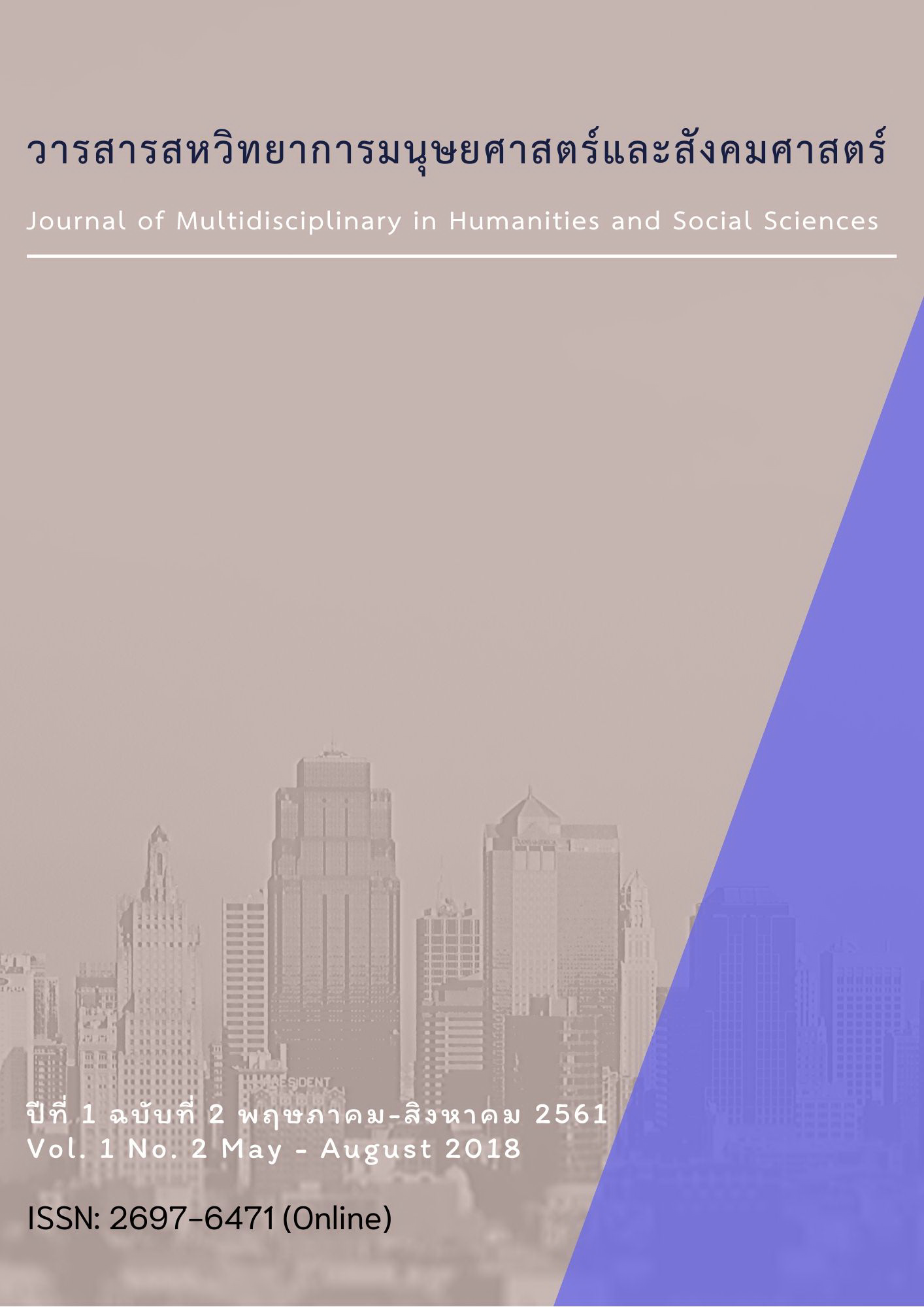Buddhist Method Administration of Agricultural Community Learning Center
Main Article Content
Abstract
Agricultural Community Learning Center. It is one of the Approaches to Agricultural Development According to the National Development Plan No. 12. Group of People in the Community. Center of Information, Message, Agricultural Knowledge for the People in the Community. This will lead to the opportunity to Learn, Relay, Exchange Experiences, Inheritance Wisdom, Culture, Values , and Identity of the Community. It is an Agricultural Community Resource. Provides a Community of Learning and Focus on the Development of Self-Reliant Farming. It is the Center of Public Learning operated by the People for the People. The Operation of the Agricultural Community Learning Center Requires Good Administration. Using the theory of "POLE" including Planning, Organizing, Leading and Controlling by Integration with the Principles of Buddhism is the Basis for Success. The Fairness that is used in the Management of Success includes Aspiration, Effort, Thoughtfulness, Investigation. It is called the "Buddhist Method Administration of Agricultural Community Learning Center" This will Lead to Effective and Productive Results.
Article Details
Views and opinions appearing in the Journal it is the responsibility of the author of the article, and does not constitute the view and responsibility of the editorial team.
References
Boonkeep, T and Vokklang, N. (2016). Organizational Management Approach. Journal of Business Administration Economics and Communication, 11(Special), 12-13.
Certo, Samuetl C. (2008). Modern Management. (8th ed). New Jersey: Prentice-Hill.
Changkhwanyuen, P. (1997). Political views of Buddhism. Bangkok: Samakkee Sarn
Information Center of Wiangphangkham Municipal District. Creating Community Learning Resources. [Online]. Available: www.wiangphangkham.go.th/images/ 1206771081/2.pdf [25 April 2018].
Isranews Agency. Agricultural Learning Center Policy of the National Council for Peace and Order has failed. Office of the Auditor General of Thailand found a problem. [Online]. Available: https://www.isranews.org/isranews-news/63458-news00_ 63458.html [25 April 2018].
Kaewprasert, D. (2000). Development of Professional Education Management Model in Community Learning Center through Local Organizations, Tambon Sao Maai, Lampang Province. Research Report. Chiangmai University.
Kasemsin, S. (2008). New Personnel Management. Bangkok: Thai Wattana Panich.
Kitsada. (2018). New Innovation. [Online]. Available: http://zangkitsdada.blogspot.com/2017/01/2-gulick-urwick-1937-7-posdcorb-1.html [27 October 2018].
Laohavichien, U. (2001). Public Administration: Characteristics and Dimensions. Vol.8. Bangkok: Semadham.
Ministry of Agriculture and Cooperatives. (2016). Agricultural Learning Center Directory of Central, West, East Region. [Online]. Available: http://new.research.doae.go.th/lncenter/TwoPage CWE.pdf [25 April 2018].
Nakata, T. (2006). Buddhism and Thai society. Bangkok: Aksorn Charoentat.
Nopket, S. (2006). Human Rights Education Strategy for Creating a Culture - a Way of Life, Human Rights and Good Faith. Bangkok: National Human Rights Commission.
Office of the Prime Minister. (2016). The Twelfth National Economic and Social Development Plan (2017 - 2021). Bangkok: Office of the National Economic and Social Development Board.
Phra Brahmagunabhorn (P.A. Payutto). (2015). Dictionary of Buddhism: Thai-English & English-Thai. (30th ed). Bangkok: The Dharma Foundation.
Phra Dhammapitaka (P.A. Payutto). (1998). Buddha-Dharma. Bangkok: Mahachulalongkornrajavidyalaya University.
Phra Dhammapitaka (P.A. Payutto). (1998). Buddhist Law. Bangkok: Dhamma Foundation.


